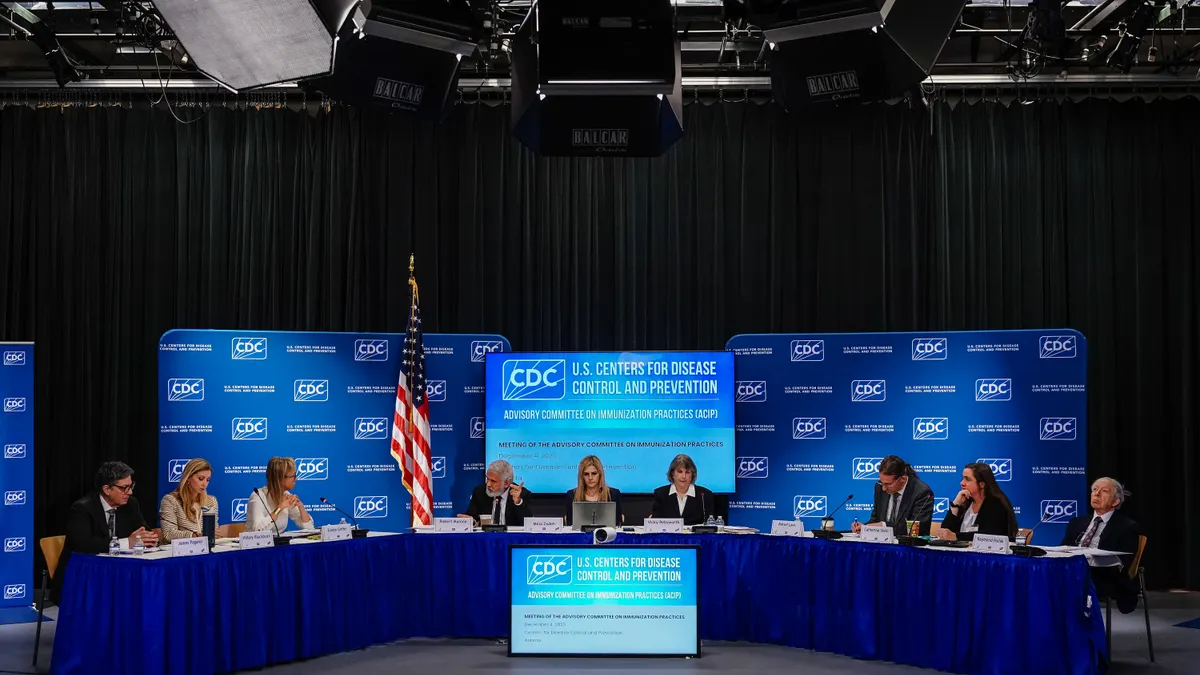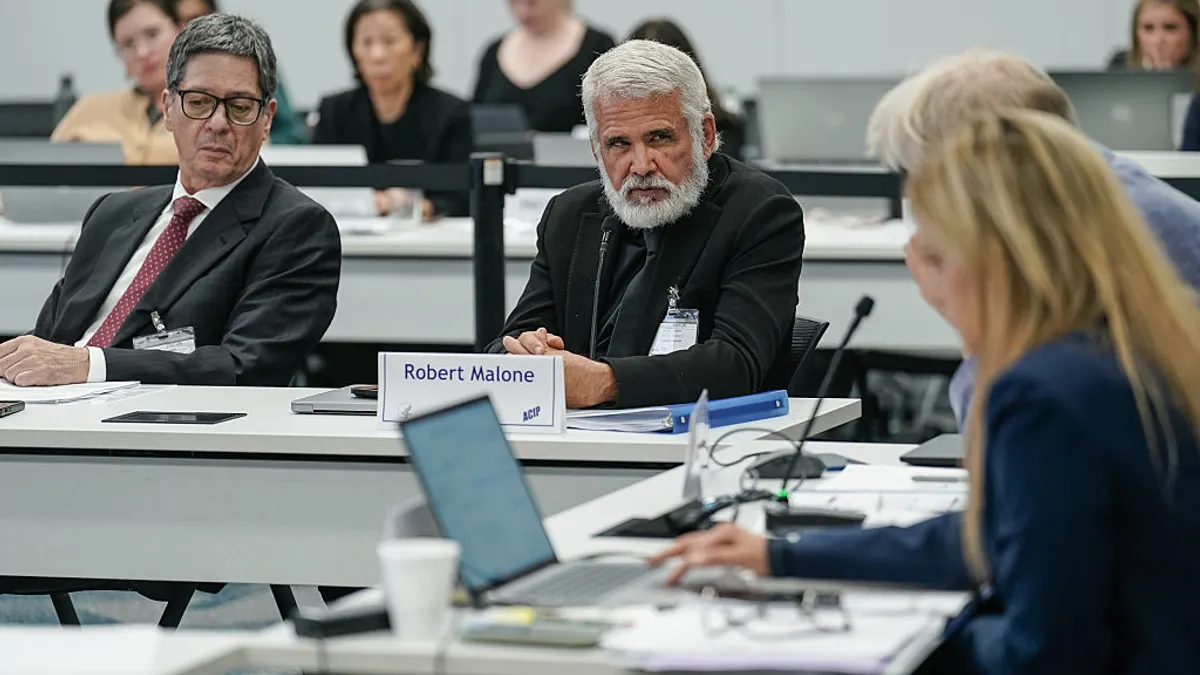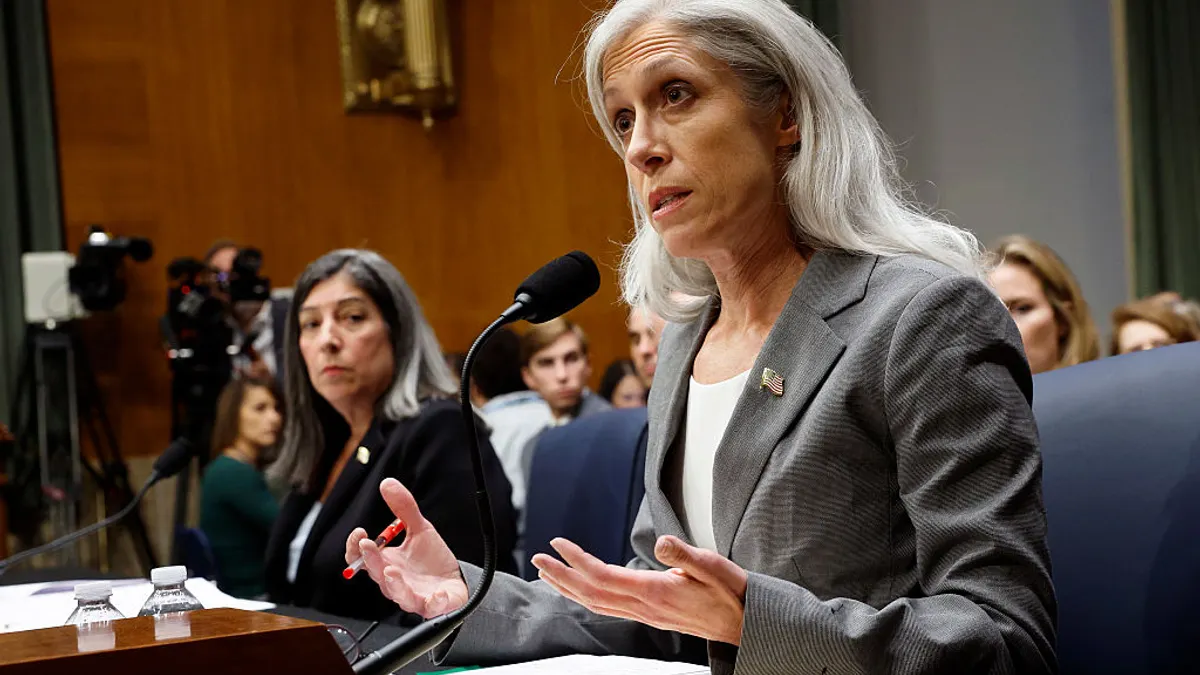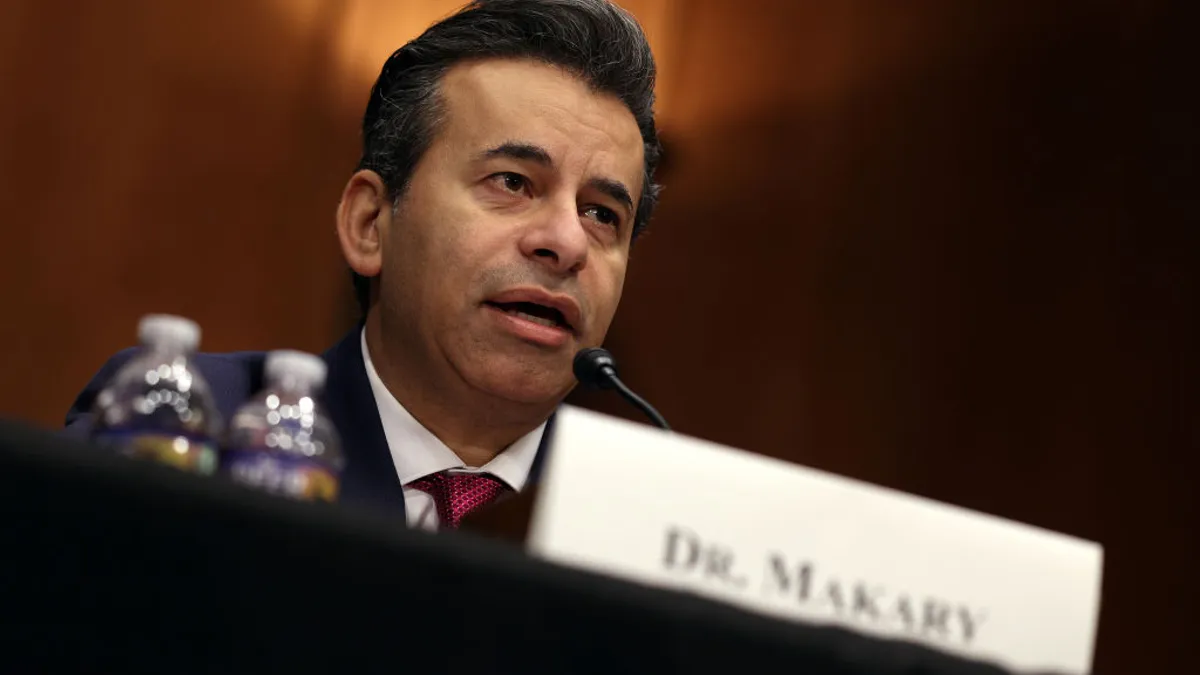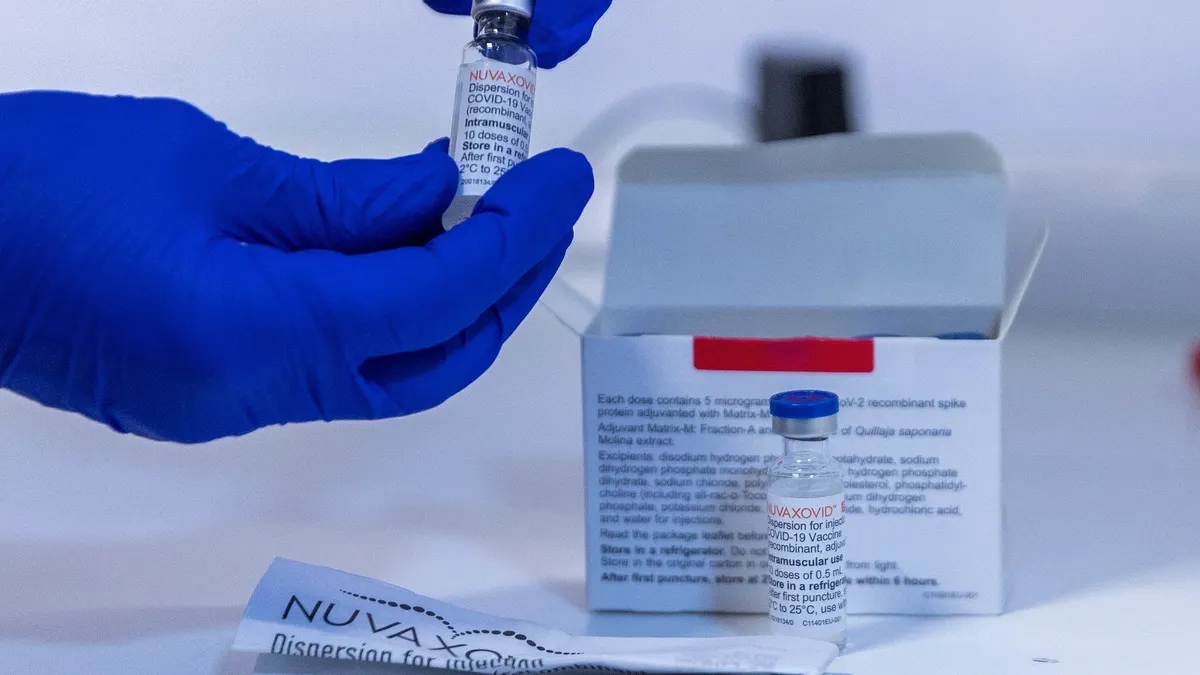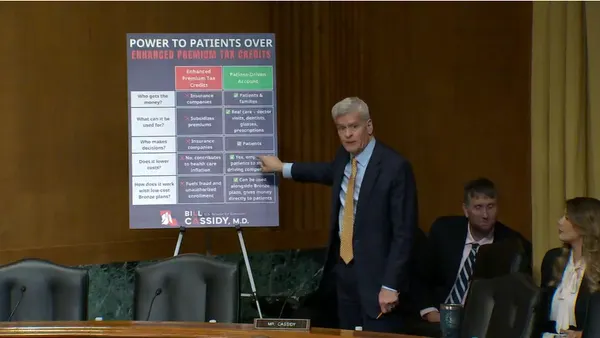Dive Brief:
- Advisers to the Centers for Disease Control and Prevention recommended Thursday that influenza vaccines used in the coming flu season be free of the preservative thimerosal, addressing unproven fears the mercury-containing substance can lead to developmental disabilities.
- If confirmed by the CDC, the recommendation from the Advisory Committee on Immunizaiton Practices, or ACIP, would affect about 5% of flu shots administered in the U.S., distributed in multidose vials that necessitate the use of a preservative to prevent bacterial or fungal contamination. Only three such vaccines are approved for U.S. use, two from CSL and one from Sanofi.
- Meeting for the first time with members appointed by Health and Human Services Secretary Robert F. Kennedy Jr., ACIP also reviewed a change in its recommendations for measles vaccines, although it won’t vote on that proposal until a meeting later this year.
Dive Insight:
Thursday’s meeting took on one of the most notable disproven claims of the anti-vaccine movement: that use of thimerosal as a vaccine preservative can lead to autism and other developmental disabilities. The hypothesis dates back to a now-debunked 1998 journal article authored by the activist Andrew Wakefield, who was later stripped of his physician license by British medical authorities for misconduct. Since retracted, that paper linked autism in 12 children to having received the measles, mumps and rubella vaccine.
“When this subject came up before [ACIP didn’t vote to eliminate thimerosal] because there was abundant evidence it wasn’t harmful,” said Paul Offit, a pediatrician and infectious disease physician who served on the committee between 1998 and 2003, after the vote.
Before voting on flu shot recommendations, ACIP members heard a presentation from Lyn Redwood, president emeritus of Children’s Health Defense, the anti-vaccine group founded by Kennedy. Redwood has also been tapped to take a position within the CDC’s vaccine safety office, according to several media reports.
Prior to the meeting, Redwood’s presentation was edited to take out an apparent reference to a non-existent study. It largely details studies of mercury in animal tissues and human cells and doesn’t offer any data on effects of thimerosal-containing vaccines and children’s health and development. Numerous subsequent analyses of children exposed to thimerosal-containing vaccines have found no connection.
Moreover, the presentation doesn’t address the differences between exposure to methylmercury, the organic form of the metal that’s an environmental toxin, and ethylmercury, the form the body metabolizes it to after injection with a thimerosal-containing vaccine.
“Ethylmercury is excreted much more quickly from the body. It is not associated with the high neurotoxicity,” said committee member Cody Meissner, following Redwood’s presentation.
Others warned that voting yes on the recommendations could inadvertently increase vaccine hesitancy. “The fear of mercury is substantial, and the firm fear of mercury in causing people to not get vaccines is a risk in itself,” said member Joseph Hibbeln.
Redwood’s presentation prompted pushback from numerous medical groups that serve as liaisons to the committee.
“Will there be an actual CDC presentation done by staff scientists, physicians and those who are subject matter experts with accurate peer-reviewed scientific data for the ability for the committee to review, or will we have layperson presentations only?” asked Jason Goldman, clinical affiliate professor at Florida Atlantic University and the American College of Physicians’ representative to ACIP.
ACIP’s new chairman, Martin Kulldorf, responded, “I think it's inappropriate to to dismiss a presentation just because the person does not have a PhD or an MD.”
The committee voted on four separate flu shot recommendations. The first, recommending annual flu shots in all people 6 years and older who have no contraindications, was passed by a 6-0 vote, with member Vicky Pebsworth abstaining.
Three other separate recommendations to use only thimerosal-free shots in people 18 and under, pregnant women and all other adults, secured 5-1 votes. Pebsworth again abstained on all three votes and Meissner voted no.
Kulldorf also presented a proposal to change the CDC’s recommendations on use of a vaccine that combines antigens for measles, mumps, rubella and varicella, the virus that causes chickenpox. Data have suggested the MMRV vaccine, marketed by Merck & Co. as ProQuad, has been linked to post-vaccination fever and seizures in children 12 to 23 months in age, while there is a lower risk if MMR and varicella vaccines are administered separately.
He proposed restricting ProQuad to children aged 4 and older.
Editor’s note: This story has been updated with additional commentary.










